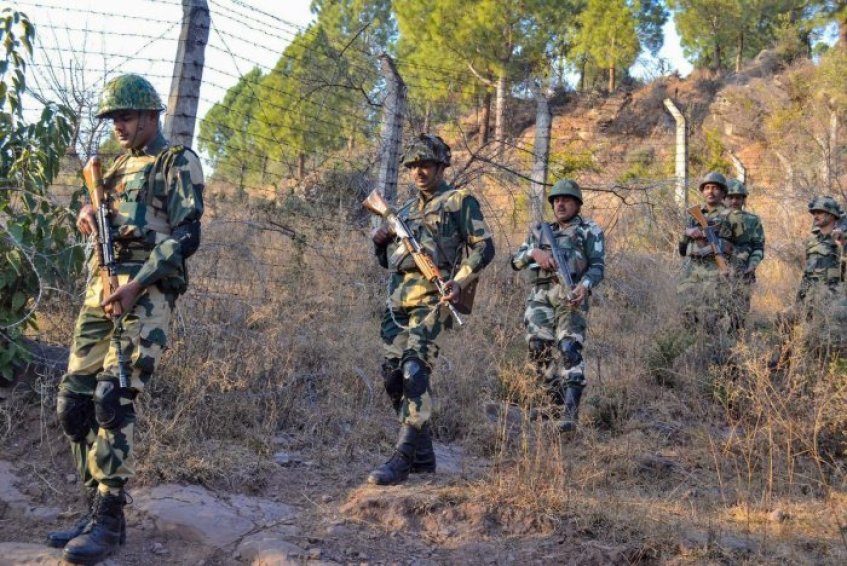This is a continuation of a thought process that was published under the same byline last Sunday, wherein we saw how the deep state of Pakistan and the terror machinery in J&K have evolved with times from purely kinetic violence to “unarmed” stone pelting as a force multiplier, to vigorous use of social media to overcome combat deficit, to rebranding terrorist organisations to fool the western world on several counts. It is time we take a leaf out of their book to repay them in the same coin, by reinventing our responses.
There are two things that are new and unprecedented in the present setting—dilution of Article 370 and the corona crisis. These should dictate our future course of action. So what should be the way ahead? Let me suggest that we see this in two parts—what we should do in J&K, and what we need do otherwise.
In J&K, this opportunity of rule by the Centre must not be frittered away. It should be used to deliver effective administration and show the difference from the past experience. From planning to execution and delivery up to the last mile should be coordinated, fixing accountability down the chain. Next, empower the grassroots by enabling panchayats and strengthening civil society despite friction from vested interests. Hitting at fund flow of the latter has started yielding results.
But there is fear of the unknown in Kashmiri minds. This is the time to create hope in the minds of the people, dispel their fears on issues like land purchase by outsiders, demographic flooding etc. Atal Bihari Vajpayee’s “insaniyat” and “jamhooriyat” become more relevant now. And as early as possible, conditions must be created for resuming the political process. For that, communication/data curbs should be lifted, and detentions abrogated. Engaging with the mind-space should be the aim, more so with the minds of the youth. It is, therefore, important that we articulate an action-plan for J&K and convey it to the citizens there. This is a strategic communication that must be created, and no effort should be spared to use all enablers like media, social media and more, to ensure its transmission to all concerned. I am afraid we are not doing this part well, thus giving an opening to the adversaries, both in the country and outside. The other side is filling up the space rather well. Hence, a concerted narrative at the national level is required as of yesterday, matched with effective use of all enablers to propagate them to the last man and woman.
However, the problem of terrorism in Kashmir cannot be resolved only by fighting terrorists in Kashmir. The tactics of combating terrorists militarily alone will not solve the problem; more will rise up, as in the past, until we address the root cause of the problem. The Kashmir imbroglio will not be solved until we also apply external pressure on Pakistan to stop supporting terrorism in Kashmir. For this, we need a synergetic application of all possible instruments of power viz. military, diplomatic, financial
India would also do well to create linkages with the pockets of goodwill that we have in Afghanistan, amongst the leaders of the erstwhile Northern Alliance. The fact that Pakistan has diplomatically veered away from KSA and UAE and has moved closer towards Turkey and Qatar should be taken advantage of to put pressure where it counts. Anything and everything must be leveraged within the limits of convention. We must state our red lines clearly, and there must be no blinking in execution. We must force them to show results in their support for exporting terror. That would be a moment to start engagement with it.
Recall what Pakistan did to us in 1989. That was a moment when India was in a weak spot on all fronts. Politically, we had a weak coalition government; financially, we had the lowest foreign exchange reserves ever; militarily, we were heavily involved in Sri Lanka and Punjab. That is the moment that General Zia ul Haque seized to inflict “a thousand cuts” starting with supporting terrorism in Kashmir. We should also be moral-neutral, and do what is more pragmatic for us.
Our comprehensive application of pressure on Pakistan across multiple domains should be made effective enough to yield results, now that Pakistan economy is in a precarious state, and is likely to be further exacerbated by the corona crisis into a dire situation. Therefore, the time to apply the squeeze is now, and force them to see reason. There never was an Article 370 dilution earlier, and there will never be a corona crisis later. Just as Pakistan exploited India’s weak moment for inflicting a proxy war, India should see, and seize, its moment, lest we learn at our peril.
Lt Gen Satish Dua is a former Corps Commander in Kashmir, who retired as Chief of Integrated Defence Staff.
Changing face of terror calls for changed response
इस शब्द का अर्थ जानिये
- Advertisement -

